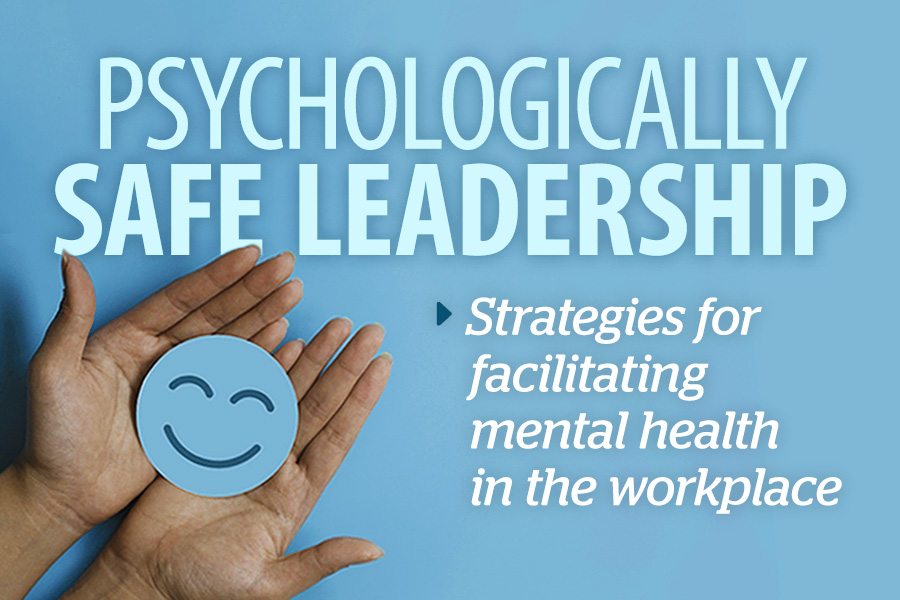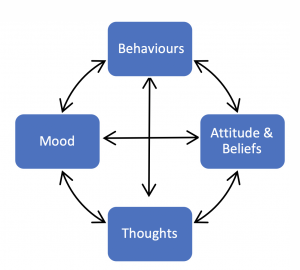
Emotional well-being is a non-negotiable competency for all leaders
By Bill Howatt and Troy Winters
Microskill influences how well thoughts and feelings are managed under pressure

EDITOR’S NOTE: ‘Psychologically Safe Leadership: Strategies for facilitating mental health in the workplace’ is a web series in partnership with Dr. Bill Howatt of Howatt HR Consulting in Ottawa, and Troy Winters, senior health and safety officer at the Canadian Union of Public Employees (CUPE) in Ottawa.
“Leaders who master their emotional well-being are at less risk of burnout.” – Dr. Bill Howatt
Leaders can’t be present and psychologically safe when acting out emotionally (for example: angry, frustrated, anxious, worried) in the presence of their employees and peers.
More employers are discovering the benefits of supporting their leaders’ emotional well-being. Why? Leaders’ success is dependent on their ability to manage their emotions under pressure.
As Steven Covey describes in 7 Habits of Highly Effective People — his ground-breaking book on self-leadership — before a person can lead others, they must manage themselves.
Leaders’ mental health is no different than physical health; it is not binary and cannot be fully understood by saying it is neither good nor bad.
Instead, it falls on a continuum from mental illness to flourishing. Leaders with higher emotional well-being are more resilient for navigating unwanted stressors than those with lower emotional well-being.
What leaders can do to impact their emotional well-being positively
Leaders can be open to the possibility they are not aware of the value of emotional well-being or know how to improve it.
A core tenet for creating emotional well-being is staying positive and reducing negativity’s impact on behaviours. Learning how to spend more time in pleasant than unpleasant emotions is a major part of what a leader needs to do to develop emotional well-being.
Creating a psychologically safe workplace requires intention and many conversations grounded in the principles of inclusion, with the goal of all employees feeling welcomed and listened to, in a culture committed to removing fear.
Organizations that make psychological health and safety a core value are more in tune with the benefits of training leaders to be psychologically safe.
For a manager to become a psychological safe leader, it is beneficial for them to enhance their emotional well-being. Emotional well-being will influence how well a leader manages their thoughts and feelings under pressure.
 Emotional well-being is dependent on attitudes, beliefs, thoughts, moods and behaviours. The choices a leader makes define his or her emotional well-being.
Emotional well-being is dependent on attitudes, beliefs, thoughts, moods and behaviours. The choices a leader makes define his or her emotional well-being.
Consider Sven, a supervisor who’s formed his attitudes about roles in the organization by observing his peers, resulting in questioning his beliefs about his competency, negative thoughts, and self-talk that influences his mood.
His mood is a byproduct of the time he spends in pleasant compared to unpleasant emotions that influence perceptions, choices and behaviour choices.
Developing emotional well-being through education is one way to help leaders. A starting place is increasing awareness of its benefits.
Psychologically Safe Workplace Awards provide employers tools, data on mental health
How to develop leaders’ emotional well-being
There are many things a leader can do to develop their emotional well-being to reduce their risk of languishing (experiencing high levels of unpleasant emotions).
Proactive actions that promote and support emotional well-being are as follows:
Activate your physical health: Eat well, get enough sleep, take time for yourself, and be active physically.
Create a weekly game plan: Start each day with a plan of defined goals to help you stay focused, avoid distraction, and feel a sense of accomplishment.
Prepare for tomorrow, today: Determine if there are pending schedule conflicts so you can go to bed feeling ready for tomorrow. Think about what needs to be done and build in at least 10 per cent extra time for each task. Use any spare time for you.
Make personal breaks mandatory: Occasionally skipping lunch is not healthy but may not be a big deal. When it is the norm, it is a big deal. You need fuel for your mental engine to run correctly. Take breaks to turn off and charge your cognitive battery.
Make mundane decisions at the end of the day: Social psychologist Roy F. Baumeister coined the term “decision fatigue” to describe the emotional and mental strain resulting from a burden of choices. He notes in one of his books that having to make too many decisions can reduce a leader’s self-control (for example: less physical stamina, reduced persistence in the face of failure, more procrastination). Leaders can save some of their decision-making resources for tomorrow by making mundane choices at the end of the day.
Promote self-care: Encourage leaders to seek help from a trusted source or employee and family assistance program when struggling with emotional well-being.
 Dr. Bill Howatt is the Ottawa-based president of Howatt HR Consulting in Ottawa.
Dr. Bill Howatt is the Ottawa-based president of Howatt HR Consulting in Ottawa.

Troy Winters is a senior health and safety officer at the Canadian Union of Public Employees (CUPE) in Ottawa.